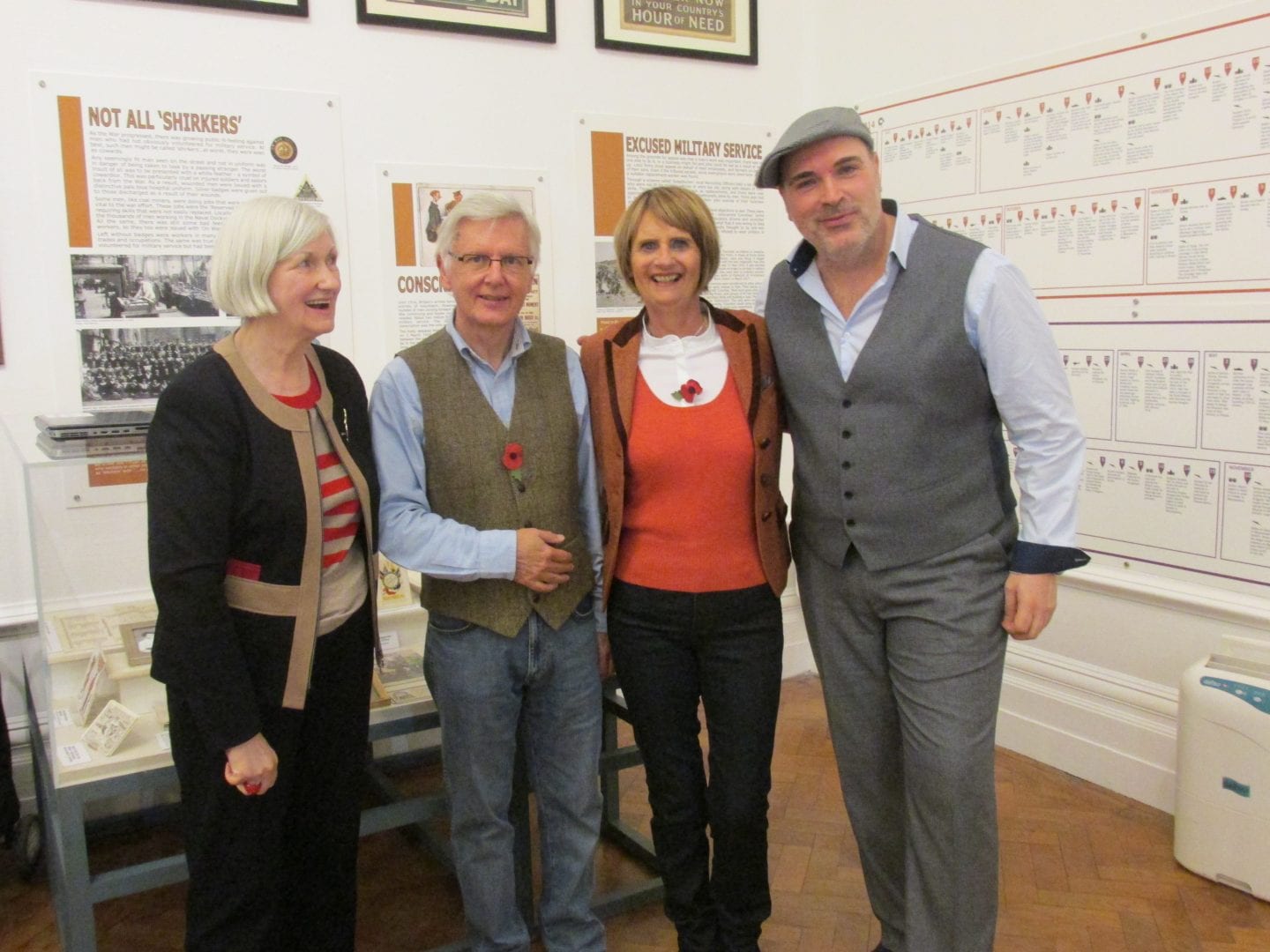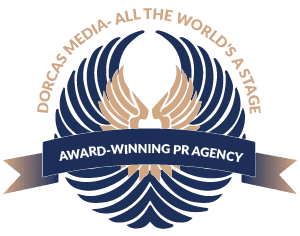
THE VOICES OF THE GREAT WAR
Pictures left to right: Barbie Thompson, Michael Corry, Anne Corry, and Kevin Kelway – Harold Cox (Kevin’s Grand Father) on the Western Front in 1916.
THE VOICES OF THE GREAT WAR THROUGH THE LOCAL PRESS
THE Great War was remembered from letters and news stories featured in the Plymouth Herald 100 years ago.
Husband and wife team Michael and Anne Corry spent nearly a year reading through thousands of local newspaper copies from 1913-1919, at the Plymouth Reference Library and West Devon Record Offices.
The couple put together hours of painstaking research for a special reading showcase that was staged at the city’s historic museum in front of an audience of 60 people, and entitled ‘The Forgotten Voices of Plymouth’.
Anne and Michael Corry sat through hundreds of hours of archive material researching the First World War, and the challenging and moral issues of the time which saw many young couples on the home front – banned from kissing and cuddling on the Plymouth seafront.
Their findings also looked at the profound impact on post First World War issues in the South West – through the eyes of the Evening Herald, and especially where local men were forced into uniform, and taken away from their homes – in a conflict that changed the city forever.
62-year-old, life coach counsellor, Mrs Corry, said: “We felt like we’d been transported back in time, and the Plymouth Herald is the best narrative of life in the city during one of the bloodiest conflicts in European history.”
The husband and wife team live in Plymouth, and started the project of investigating the First World War in June 2013, in collaboration with the Plymouth Museum.
Mrs Corry, added: “We were both regular fixtures at the City’s Reference Library and West Devon Record offices, and we uncovered some amazing facts of contemporary life in Plymouth through the eyes of local journalists at the time.”
“It seems bizarre in today’s climate, but the city council had a ‘Watch Committee’ whose main focus was to look at the sexual and public morals of Plymothians – where couples kissing and cuddling on the promenade were banned.”
“Old spinsters were up in arms and called it an ‘impulse to love’ at the time.”
“The world of work opened up for women in Devon during the First World War, and the biggest openings was in the munitions industry.”
62-year-old, Michael Corry, a local copywriter, added: “We uncovered spy stories, and how the Astor family were influential in securing war work for the city.”
“Copies of the Herald newspaper used to be shared by soldiers in the trenches who regularly wrote letters to the paper talking of their war experiences on the Western front.”
“It was very moving reading poignant articles of thousands of wounded and injured soldiers being brought to Plymouth from across the UK to convalesce in the South West.”
“Many other stories included conscientious objectors to the First World War – who refused to fight for King and Country.”
“We intend to run a series of talks building up to the centenary of the FIrst World War through research uncovered from Herald newspapers from 1913-1919,” said Mr Corry.
Kevin Kelway, also took part in the showcase and read out letters from the American Ambassador who visited the city in 1917 to raise moral, and was granted the Freedom of Plymouth in 1918, where the visit was seen as a great national event cementing the city’s great part in the war effort.
Mr Kelway, said: “I was very proud to talk about my Grand Dad who served on the Western Front and fought on horseback with his famous horse ‘White Luck’.
Barbie Thompson, also read out tales of convictions and the issue of black-market profiteering in the city at the time.
FACT FILE:
AMERICAN AMBASSADOR GIVEN FREEDOM OF PLYMOUTH
The Mayor of Plymouth, Alderman J.P. Brown in making the presentation, (in London), spoke of Dr. Page’s visit to Plymouth as a great national event.
The speech delivered on the occasion was the first great public utterance made by the American Ambassador in the provinces when he spoke of his country’s great part in the war.
“You told us”, said his worship, “that you felt one of us and before you left we felt that was so and we were at one with you.”
Dr. Page was greatly moved by the ceremony and spoke with much feeling of the impression made upon him when he was at Plymouth.
“The responsiveness of the audience at that packed meeting in the Guildhall was very remarkable. It made a deep impression on me. When your kind invitation came to go on the same anniversary this year it was with great regret that I had to say no, for while I am not done for yet, I have had warnings from my physicians that I might not be too active, and they practically forbade the journey.
It is heart breaking that you came here today from the borough of Plymouth, it is most touching.”
Finally, Dr. Page presented each member of the deputation with a bound copy of his Plymouth’s speech and said that he hoped to visit Plymouth in the future.
Dr. Page visited Plymouth on the4th August, 1917, as American Ambassador and was conferred his Freedom Honours on the 4th August, 1918, in London, cementing the bonds of Plymouth with the United States.




